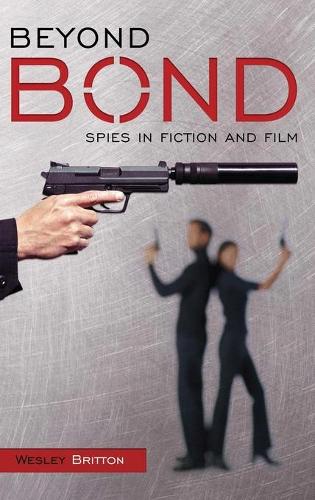
Beyond Bond: Spies in Fiction and Film
(Hardback)
Publishing Details
Beyond Bond: Spies in Fiction and Film
By (Author) Wesley Britton
Bloomsbury Publishing PLC
Praeger Publishers Inc
30th June 2005
United States
Classifications
General
Non Fiction
The arts: general topics
700.458
Physical Properties
Hardback
300
Width 156mm, Height 235mm
595g
Description
At a time when the methods and purposes of intelligence agencies are under a great deal of scrutiny, Wesley Britton offers an unprecedented look at their fictional counterparts. In Beyond Bond, Britton traces the history of espionage in literature, film, and other media, demonstrating how the spy stories of the 1940s began cementing our popular conceptions of what spies do and how they do it. Considering sources from Graham Greene to Ian Fleming, Alfred Hitchcock to Tom Clancy, Beyond Bond looks at the tales that have intrigued readers and viewers over the decades. Included here are the propaganda films of World War II, the James Bond phenomenon, anti-communist spies of the Cold War era, and military espionage in the eighties and nineties. No previous book has considered this subject with such breadth, and Britton intertwines reality and fantasy in ways that illuminate both. He reveals how most themes and devices in the genre were established in the first years of the twentieth century, and also how they have been used quite differently from decade to decade, depending on the political concerns of the time. And he delves into such aspects of the genre as gadgetry, technology, and sexuality - aspects that have changed with the times as much as the politics have.
Reviews
Given the recent complications in intelligence-gathering and interpretation, perhaps some in that discipline should take time for a review of how the professionals do it, at least on a soundstage or in paperback. Britton examines the genres within the genres, especially those that rose and fell in response to the events of the time, beginning with such classics as foundational The 39 Steps and the loss of innocence in Maugham, Ambler and Greene. He describes the prelude to the Cold War in the personae of spy heroes on the radio and print and the influence of McCarthyism on television spies, works through the rich pickings of the Reagan years and the influx of action and explosions in recent techno-thrillers. In his conclusion, Britton describes what 9/11 has wrought in the genre, and why even the most casual viewers and readers are paying more attention. * Reference & Research Book News *
Author Bio
Wesley Britton has taught college-level English in Texas, Oklahoma, and Pennsylvania, and has published poetry, book reviews, scholarly articles encyclopedia entries, and newspaper columns in various books and periodicals.
